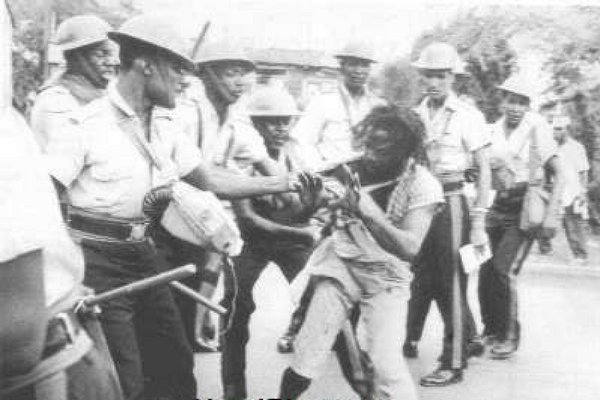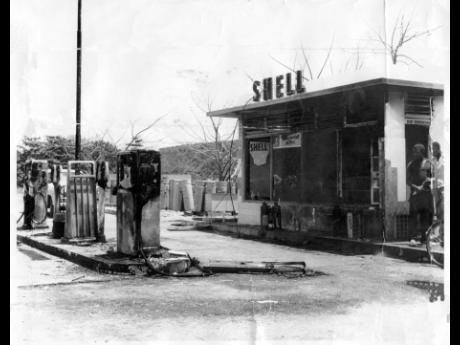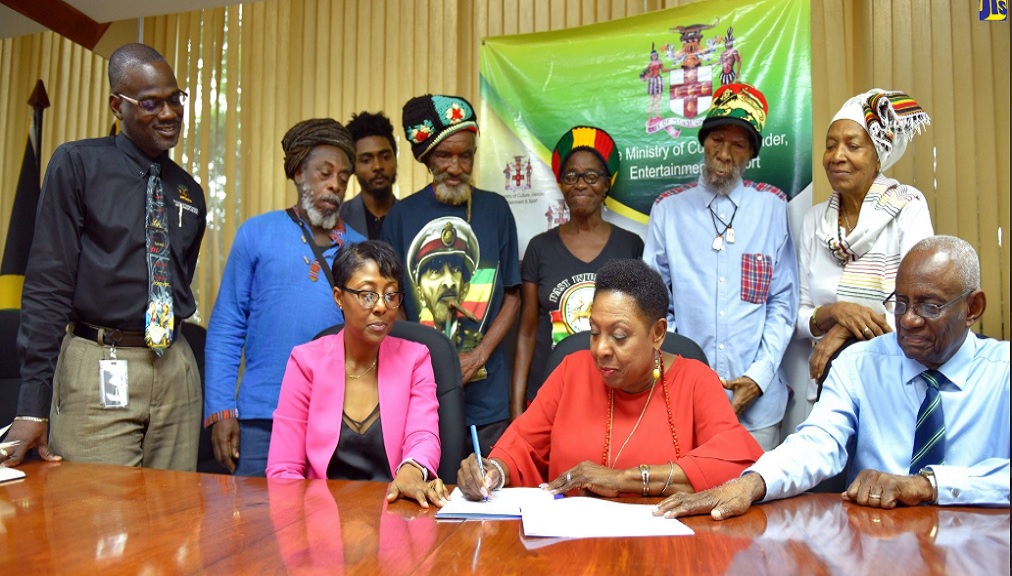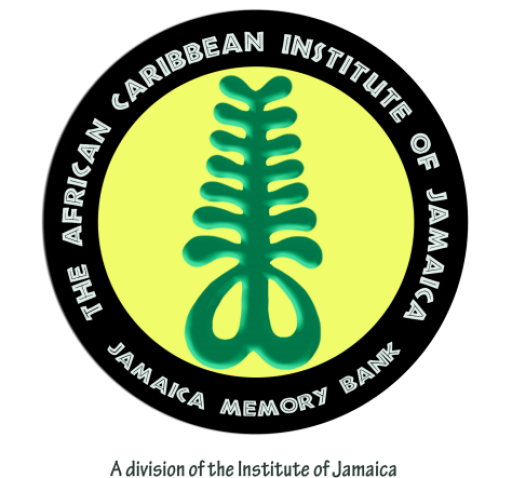In Jamaica, Rastafari has been crucial in redefining and reinforcing ancestral, spiritual, and cultural links to Africa. The Rastafarian refusal to accept any of the foundations of colonial ideologies placed its followers directly in opposition to the system, making them targets for brutal oppression. April 11- 13, 1963 will be remembered as one of the most ‘dread’ attacks on Rastafarians in Jamaican history – the Coral Gardens Massacre or Coral Gardens Incident. Dubbed “Bad Friday” the incident began on the Easter holiday of Good Friday 1963, but in the end, there was nothing “good” about it. In recognition of the ‘International Day Commemorating the Victims of Acts of Violence Based on Religion or Belief,’- August 22- this article seeks to explore the events that led up to the “incident” in Coral Garden’s, the immediate aftermath and the response of the authorities in the years that have followed.

The Rastafarian Movement began in the early 1930s and was built on the idea that its
followers and all African people displaced outside of the continent would eventually be
repatriated to “Zion”, Africa, or more specifically Ethiopia. Rastafari, the spiritual movement pioneered by Leonard P. Howell in the 1930s was born out of Howell’s belief that the Emperor Haile Selassie I of Ethiopia, born Lidj Tafari Makonnen, was the black Messiah the manifestation of God or Jah on earth. Rastafari has a serious connection to Africa and has developed its own culture and philosophy. In the early days of Rastafari, it mainly existed in Kingston, where many rural migrants first became exposed to the doctrine and its practices, and it spread throughout the island.
Leading up to 1963 the relationship between Rastas and the wider society was already
strained. The relationship between the Rastafarian community and the British colonial
government in Jamaica had been tense years before the Coral Gardens Massacre. The police would arrest and evict Rastafarians, often charging them with possession of cannabis, the plant used as a Rastafarian religious sacrament. In 1959, a confrontation at Coronation Market led to the police beating a Rastafari security guard, prompting a violent response from nearby shop owners. This led to the arrest of 57 Rastafarians who were brutally beaten and some were even subjected to the forced shaving of their dreadlocks. Later that year, Rastafari leader Reverend Claudius Henry was accused of plotting a revolution and communicating with Fidel Castro.
The violence in Coral Gardens was triggered by a land dispute in 1962 involving Rudolph
Franklyn also known as “Beardman,” a Rastafarian who was reportedly farming illegally
there. Franklyn and other bearded men lived in relative peace on the land until it was sold to Ken Douglas. During one of several attempts by the authorities to evict these men off the land, Franklyn was shot five times and left for dead in a churchyard. He was taken to the hospital treated and released but, on his release, was charged with possession of ganja. He was sentenced to six months in prison and released in 1963. After his release Franklyn and his accomplices set a fire to a gas station owned by Douglas. The police were called resulting in a fight between them and the would-be arsonists, and when the dust settled, casualties included Franklyn and two of his men. In total three Rastafarians, three civilians, and two policemen died in Coral Gardens that day. Two others who were involved in the incident were tried, found guilty, and sentenced to hang, which happened on December 2, 1964.

In the aftermath of the Coral Gardens incident Rastamen throughout the western part of
the island were rounded up and abused at the hands of the armed forces. “Bring in all Rastas, dead or alive!” are the infamous words of Jamaica’s then Prime Minister Sir Alexander Bustamante who went to St James with the commissioner of police and head of the Jamaica Defence Force. Police from neighbouring parishes were dispatched to Coral Gardens and surrounding areas where more than 150 ‘bearded men’ were rounded up and arrested. There were reports that many of these persons- who had no part in the incident were arrested, jailed, beaten, and tortured. At the time there was widespread prejudice against Rastafarians in Jamaica, and Franklin’s attack seemed to add fuel to the fire. In the 2014 Gleaner Article “Rastas demand reparations” written by Karrie Williams, Walter Brissette a Coral Gardens survivor, in speaking about the atrocities said, “The police hunted us like animals and took us all to prison, where we were severely mistreated. We were spat on, brutally beaten and food was purposely withheld from us,” the forced cutting of beards and shaving of heads were also among the injustices the Rastafarians claimed they suffered during the incident dubbed “Bad Friday”.
Since 1963 steps have been taken to seek recompense for the brutal treatment that Rastas faced after the Coral Gardens Incident. In 2015 the Public Defender reported that after much investigation members of the Rastafarian community were treated unjustly during the Coral Gardens Incident and called for an apology as well as reparations for those who suffered unjustly. The Rastafari Coral Gardens Benevolent Society whose organization represents survivors of the 1963 atrocities against Rastafarians in Western Jamaica made twelve demands of the Government of Jamaica in 2016. Since then, the Prime Minister of Jamaica Andrew Holness has issued a formal apology to the Rastafarian community in 2017 and a 10-million-dollar trust established for the surviving victims and their descendants. The amount was recommended by the Office of the Public Defender, proposing that the Trust Fund should be no less than J$10M subject to review if further analysis suggests the need for a greater sum. In addition to the Trust the Ministry of Culture, Gender, Entertainment and Sports (MCGES) has worked closely with the Rastafari Coral Gardens Benevolent Society to construct a Care Home for the now elderly victims of the Coral Gardens Incident. The Rastafari Coral Gardens Elders Home, established in Norwood, St James opened in April 2021 cares for the Rastafari survivors of “Bad Friday.”

The African Caribbean Institute of Jamaica/ Jamaica Memory Bank (ACIJ/JMB) as the focal point for Intangible Cultural Heritage (ICH) in Jamaica is relentless in our mission to
safeguard the ICH of Jamaica which includes the Rastafri. Their unique “livity” or way of life is important to threads that make up the fabric of Jamaican culture and the ACIJ/JMB has worked with the community to research, document, and disseminate information to Jamaica and the world at large.
Bibliography
Campbell, Edmond. “Government says sorry for 1963 Coral Gardens massacre.” The
Gleaner, April 4, 2017. https://jamaica-gleaner.com/article/news/20170404/government-
says-sorry-1963-coral-gardens-massacre. Accessed August, 9. 2024.
“International Day Commemorating the Victims of Acts of Violence Based on Religion or
Belief-Aug 22.” UNESCO. https://indonesia.un.org/en/242953-international-day-
commemorating-victims-acts-violence-based-religion-or-belief-22-august.
Accessed July 18, 2024.
Lundberg, Ronald. “Remembering the Coral Gardens Massacre.” Reggae in Seattle, April 11,
- https://reggaeinseattle.com/remembering-the-coral-gardens-massacre/. Accessed
July 20, 2024.
“The 1963 Coral Gardens Massacre: A Dark Chapter in Jamaica’s History,” Our History, April
10, 2020. https://www.ourhistory.org.uk/the-1963-coral-gardens-massacre-a-dark-chapter-in-jamaicas-history/. Accessed August 21, 2024.
Virtue, Erica. “Coral Gardens Rastas to have a Merry Christmas …Compensation to begin
shortly for 1963 atrocity.” The Gleaner, September 29, 2019. https://jamaica-
gleaner.com/article/news/20190929/coral-gardens-rastas-have-merry-christmas-
compensation-begin-shortly-1963 . Accessed July 18, 2024
